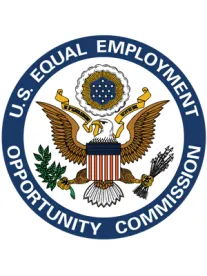The Equal Employment Opportunity Commission (EEOC) is responsible for enforcing federal laws that make it illegal to discriminate against an employee or a job applicant based on membership in protected classes. The agency has the authority to investigate charges of discrimination against employers, including manufacturers, who are covered by the law. Most employers with at least 15 employees are covered (20 employees in age discrimination cases).
Although the Department of Labor usually is at the forefront of manufacturers’ minds when it comes to federal agencies scrutinizing their workplace practices (for employee safety and wages, along with immigration matters and unfair labor practices), the EEOC may investigate manufacturing employees’ claims of discrimination, disability and religious accommodations, retaliation, harassment, and pay disparities.
A single EEOC charge filed by an employee can become more expensive and disruptive proceedings for an employer. A simple EEOC charge can provide the EEOC an opening to explore other claims, such as for systemic discrimination of an entire class of allegedly aggrieved employees.
Indeed, so far in 2020, the EEOC has filed lawsuits against manufacturers for a variety of claims involving alleged sexual harassment, retaliation, disability discrimination, and equal pay violations. The EEOC has forced large public settlements from manufacturers to resolve pending lawsuits brought by the agency, and even to resolve pre-suit charges, with some settlement amounts reaching close to seven figures.
EEOC investigations, and the litigation that can result from them, can be more costly and intrusive than private lawsuits. If they end with settlements, the terms usually become public through EEOC press releases and court orders, often placing onerous burdens on a company for many years.
The last period of great economic stress (the Great Recession) saw a spike in EEOC activity, some initiated by workers filing charges with the agency claiming the economic justifications for their separations were pretext for discrimination and retaliation. In the midst of the COVID-19 pandemic and economic downturn, with a large segment of the country focusing their attention on social justice, employers (especially manufacturers) should ensure their equal employment opportunity policies are being implemented and kept up-to-date, and that employees and managers are receiving meaningful training on these policies. Doing so provides the first line of defense against charges filed with the EEOC, and possibly stopping issues before they become lawsuits.
Manufacturers might also consider auditing their employment practices, including hiring procedures and pay differentials, and having counsel perform these audits under attorney-client privilege. Even when disparities in hiring or pay between protected groups are not the result of an employer’s intentional conduct, the EEOC can pursue investigations and lawsuits under a theory of disparate impact.



 />i
/>i

